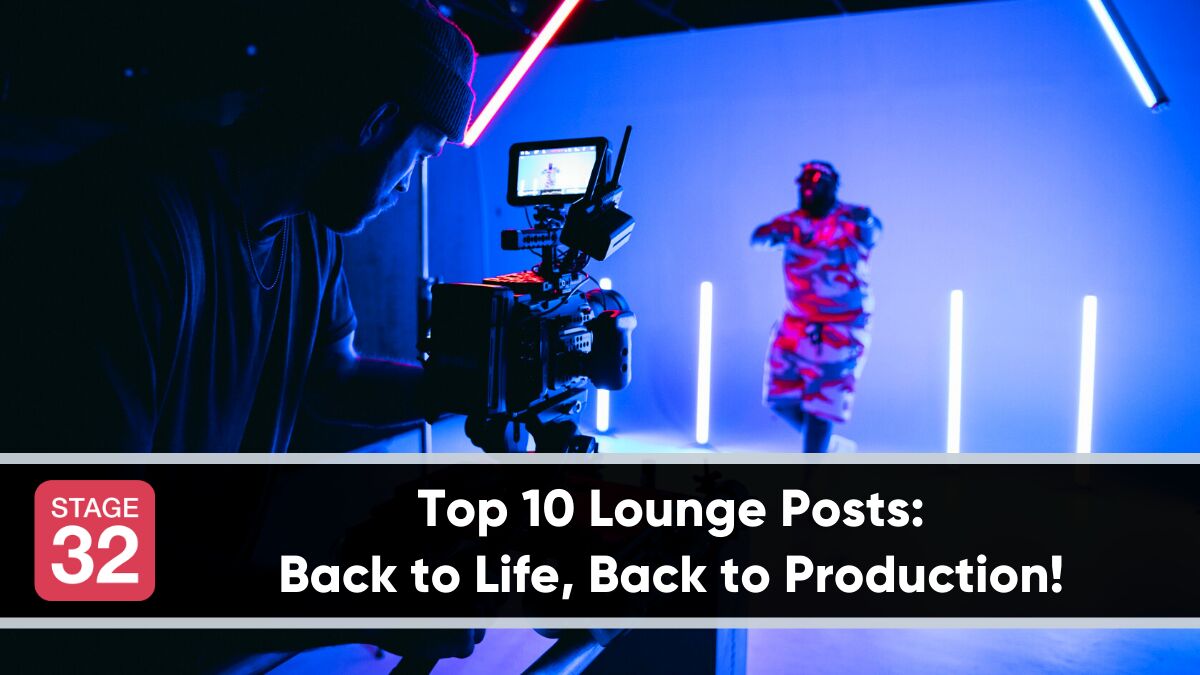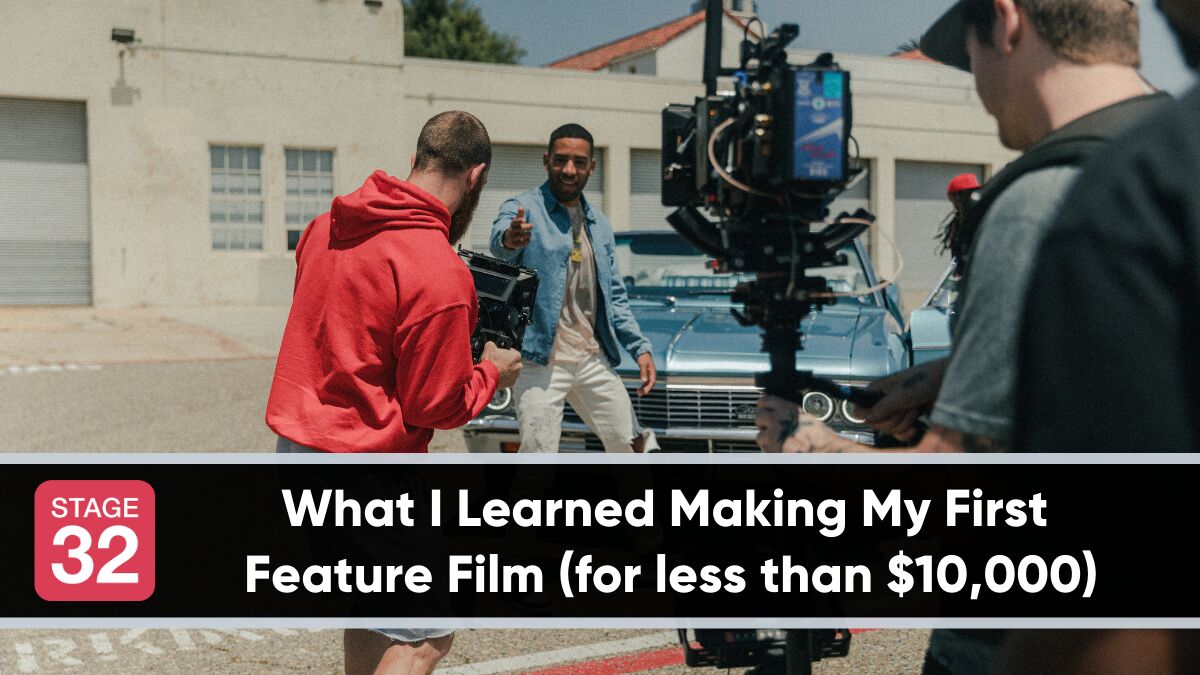An Indie Filmmakers Guide to Film Festival Submissions
If you are starting to consider a film-festival run for your project, here’s some tips on submitting your film. I have a bit of experience with FilmFreeway. I produced and scored a film, “As the Earth Turns” a 1938 never-released silent sci-fi film in 2018-19 (I own the film-estate). It was had an epic festival run with 122 festivals and won 136 awards/nominations.
That film taught me quite a bit about the ins outs of FilmFreeway, a platform that allows you to submit to many festivals. Currently, my short documentary (about the filmmaker of “As the Earth Turns”) has been selected to a number of festivals, even though I’ve only started to submit, as of this writing. I believe this will be a pretty involved festival-run, as well.

Poster & Festival Laurels for "As the Earth Turns"
Scams, In-Person & Online Festivals
First of all, regarding scam festivals, sure, there are some festivals that can disappear without a trace, but they are very rare. It only happened a few times for me, and both times, FilmFreeway covered the submission fee (part of the “Gold membership”). Overall, most festivals are good to submit to. There are over 10,000 festivals on the platform!
You do have to decide how wide you are going to pitch your film, and what you want to get out of it. With the pandemic, many in-person screenings disappeared, although things are fairly quickly loosening up. For the last festival run, in 2019, I was able to travel to a number of them, especially in LA. My goals as filmmaker and composer are to network with others, ideally in-person. Online festivals can have pretty surprisingly good networking, as well.
One of the best festivals I was involved in was was online, and incredibly intimate. I made some very good friends from it. When you attend a film-festival it can be a challenge to meet with other filmmakers that are focused on their projects. I do recommend researching other filmmakers ahead of the festival. It’s always great if you can talk with another person about their projects. Business is always personal, including with film festival personnel.

On Stage at the Seattle International Film Festival
Distribution
I was able to achieve distribution on the first film based on the success of the festival run (Not an easy task with a silent film!). There are growing opportunities for distribution through festivals, themselves. In fact, I just turned down an online platform that offered monetization for my documentary. That doc is just too involved in the festival run right now (and will be on a DVD) to get too wrapped up in distribution. They have offered me a “rain-check” when I am ready.
In any event, I have had offers for a number of distribution options through festivals, in general. Most are pretty small and limited. They are an honor, but unlikely to give you much of a financial return. Even regular distribution can be very challenging, and can require a LOT of time to promote your projects. In the case of the documentary, it was originally intended to support to the main film, but has already surpassed my expectations.
Film Freeway
First you will need to join (FREE), add your profile, and then add your project(s). Having a good synopsis, logline, stills, poster, etc. are all important in setting you your project on FilmFreeway, and overall promotion. You can upload your trailer and film, and they will be available to festivals as they become interested. (a public link doesn’t necessarily show the film, but can show the trailer, etc., which means this can act as a website for your film, if necessary)
You can see my projects on Film Freeway, for reference, in my bio below.

Off to the Races
You may start to get invites just by having a project there. Right now, as festivals are returning after the pandemic, they are hungry for content. They do collect fees for submissions (and can vary from $0-100s). Those fees may pay for screenings, theaters, promotion, awards, etc. Trophies can also cost additionally if you win, and want one. (Who doesn’t?)
Premium options: ($) I do recommend if you are going to go for it, get the “Gold” membership on FilmFreeway. That will immediately reduce nearly everything on the platform in price, especially festival submissions (up to 50% off) The monthly subscription can be cancelled anytime. In addition, there are some very good promotional tools (Hint: Go to “My Projects” and click on “Marketing Options”). I just did a three day promotion, using two simple, but slightly different tools, “Promoted Projects” and “Featured Projects”, each costing $10/day - $60 total. I have been receiving non-stop offers of discounts from 100’s of festivals (remember that 10K number!).
It’s now become an issue of looking at as many as possible and determining the likelihood of selection. I have received a ton of 50% off and higher, including full-waivers! When a festival does ask you to submit, you have a much better chance of selection (my first film proved that concept). I always write personal note thanking the festival for the invite and interest. You can do that when you submit to the festival. I generally do research on the festival both on the portal and the festival website, regarding premiere status, and any other requirements. It can be daunting, and hard to understand. In the end, the worst that can happen, is that you might have to pull out of a festival.

Poster & Festival Laurels for "It Gets in Your Blood"
Festival Combinations
There’s actually a number of festivals that work together, or were created together. Liftoff is one of them (linked in bio below). You join for a fee, but can submit to all of the festivals for free! There’s a lot of other benefits, too. (workshops, etc.)
You may start to get additional discounts from one of these festival groups. You’ll get an email with discounts to multiple festivals. Even festivals that seem pretty independent can be run by the same folks. I’ve had selections in one festival that resulted in selections in another one. Only research can tell you that the same folks are involved in both festivals. It’s a true community out there, and many of these festivals support each other.
Not enough? Need more festivals?
There are other more intense promotions that I did on the first film, but don’t feel I need to on this smaller one. For the first film we did do some of the spotlight features. They are considerably more expensive, and may be worth it for larger projects (features, etc.).
In the end, festivals are interested in getting as many films submitted as possible. It does add to there budget to produce their festival, and gives them more of a selection to choose from. The really big festivals are always more difficult to get into, and they may have more premiere status issues (City, State premiere, no online availability of your film, etc.). I have had experience in a few of those. They can be wonderful, but involved.

On the red carpet a Seattle International Film Festival
Submitting the Film to a Festival
Look carefully at how you are going to submit the film. Is there a specific submission for genre, type of film, length, etc. Look at the rules carefully. You may be able to add additional categories for submitting later. That’s usually a good sign. A festival just did ask me to consider adding new category submissions. It resulted in 5 more nominations. Anytime a festival asks you to do something, that means they are interested in your project!
There may be categories for other cast and crew. Score and music can really be beneficial to your composer or songwriters. Inviting them to the event, can be equally important to them and the film. Any awards for music, cinematography, acting, editing, directing, producing, etc. all help the film production. Make sure you help those folks that helped you make the film.
One tricky challenge with in-person screenings is the ever-mysterious DCP!
You may need to learn how to create a “DCP” for theatrical presentation. A DCP is a specialized file of the film on a thumb drive, that can be ingested in an movie theatre system. It can be tricky and expensive, and difficult to check ahead. If a DCP fails at festival, you can have problems. I have experienced this. Some festivals will help you with creating a DCP. It can be done yourself, but you will need some interesting software (linked in bio below).
It can also be done in Davinci Resolve as well (Google it!). It is a special Linux coding, so even making copies can require special software once you have a master file. There is software to do this (linked in bio below). Some companies can manage print traffic (sending your film to a theatre, etc.) along with making the DCP. This can save a lot of pain, postage, and effort. Sending drives internationally can be difficult and pricey.
If you are not regularly creating projects, you might want to have someone else do it. For my first project, the audio post studio that did the music also did the DCP. It still cost some money. What is most important, is that you really need to check the DCP in a theater. That can be pretty challenging finding somewhere to do it locally. If you can’t, make sure you send out the DCP very early to the festival, to allow for any problems.

Festival Awards for "As the Earth Turns"
CHECKLIST for Film Festival Submissions
For every selection, I do these things:
1) Make a folder on my computer for each festival including all emails, laurels, etc.
2) You might create a database to keep track of everything.
3) Create a laurel (usually FilmFreeway makes them for you, although some festivals don’t always update and you may need to create your own, using an old laurel. I use Preview on MAC to do this quite successfully.
4) POSTER UPDATES: Put the laurel on your highest res poster. Think about your poster layout first! Black backgrounds are easier to edit. You can copy and paste a laurel and move it around without disturbing a background. I just added a black margin around my poster to make this a lot easier. I can add unlimited laurels, too. I’ll just shrink the poster in the middle!
5) Post on all social media the laurels, along with hashtags, and links to the festival, so they can see you are supporting them. @name-of-festival is most important!
6) Update your websites, database, etc. with the festival.
7) Stay in touch with the festival. There may be updates as the selection may evolve into a nomination or award (Then you get to update ALL of the above!)

Postcards/Posters
Movie postcards are very popular at festivals. They make great business cards for networking. You can have a local or online printer do this cheaply. Look for coupons or specials!
If you need to make physical posters and postcards try local printers. I found one that was a mile away from my house. You may be able to get a 24x36 full-size extremely high-quality theatrical poster for a reasonable price. They can be a fundraising tool, too! I do use Threadless.com for merchandise on demand. Your poster can be available there as well.
My poster for “As the Earth Turns” was updated 100s of times. I had to completely redesign it a few times to make room for more laurels! Make your master (clean-no laurels) 24x36, poster size, 300dpi. Then create smaller ones. I usually make a tiff, png and jpg. Graphics software can be another skill. If you need to make DVDs, there are great graphics people out there that can help author and create all of the artwork.
Traveling to Festivals
Things can cost on the road. If you’re film has been selected, it’s not always a guarantee of a screening. I do recommend that you contact the festival as soon as possible upon notification of selection. Some notifications are only days ahead of a screening. If I get any hint that a film of mine is a possibility, I contact the festival and tell them I am interested in attending, and would appreciate confirmation of screening as far ahead as possible. Airfare and accommodations can be a lot cheaper with lead-time.

I also promote the screening in the city I am going to. This requires research. There are companies that can help with email addresses. It can be challenging to find the right media folks in a publication, radio or TV station. I have had success with local interviews on TV. The local festival may help you with this. There may be dates and times assigned to media coverage of an event (especially red-carpets!).
There may be group interviews. Find out about any social events (dinners, awards-ceremonies, etc.) Whatever you do, take a LOT of photos at the event! This is your real goal. It creates a journal of the projects evolution from creation to audience. All of your images can be on your websites, and social media. The event is limited in audience. Your lasting story of the event will be archived forever online. Future distribution, and even future projects may depend on this. Take and post pics and video!
If you can do Q&A, do it! It can be a lot of fun. I’ll write up a personalized short 2 minute introduction of the project, especially if the film needs context. If possible, I will ask if I can do the introduction ahead of the film. If the film is in a “block” of films, it may need to go ahead of the block or afterwards. Features get more attention at festivals, and usually can showcase their cast & crew. That intro an be used online, as well.
A key piece of information here, is to realize that festivals are all run by real people. The more you get to know them, the better your successes will be. Festivals can run for decades and have dedicated staff that may have created the event, and kept it alive, even under the most challenging of times!
Make your emails as personal as possible. Most festival staff are in the filmmaking business. Some of the most active filmmakers I have found have been festival founders. I have great respect for those that create events. I’ve done it. It can take a tremendous amount of time and effort to produce. As much as you want them to promote your project, you need to make an effort to help them in any way you can. Festivals will appreciate your help and your efforts will come back to you in incredible ways.
Resource links from this article:
My FilmFreeway links:
- It Gets in Your Blood (Documentary)
- As the Earth Turns (Feature)
Filmmaker Resources on Ed's website
It Gets in Your Blood Work & Results
About Ed Hartman

Ed Hartman is an award-winning, accomplished composer, performer, and educator. Ed has scored music for film, T.V., radio, and even a planetarium. He received his Bachelor of Music from Indiana University and has been involved with the film and music communities in the Pacific Northwest for decades. He creates music drawn from many styles, genres, and cultures. Ed is at home with classical orchestral music, along with electronic and world music. As a percussionist, he can create intense rhythmic scores that can contrast with lyrical orchestral passages. Ed loves sci-fi, drama, comedy, fantasy, and suspense.
Ed recently scored and produced the award-winning film, As the Earth Turns (1938 unreleased film), and scored music for the documentary: Project Colombia (The MapMakers),the feature film: Fitz (Who Made Who Productions) - 2008 Alberta Film and Television Awards Nominee: Best Feature Film).
Ed has scored many short films, including Pause, Saving District, The Son, The Father, Little Peter Needs to Fly, End Zone, The Three Stars (Seattle International Fly Film Festival), Trauma, Winston, Those in Need, and A Rich Mann.
Media Credits: His music has been heard in the motion pictures The Blind Side and Scooby-Doo, The Mystery Begins (Warner Bros.), The Cold Light of Day (Summit Ent.), Surviving Christmas (Dreamworks), Into the Fire(BCDF Pictures), Spirit of the Game (Samuel Goldwyn), A Different Sun (Monolith Pictures), Cool It (1019 Ent.), and Mini's First Time (Bold Films).
Ed's music has been on television, including Twilight Zone (CBS), Revenge, Motive(ABC), Twas the Night, Katie Morgan, Big Love (HBO), Lucifer, Brooklyn Nine-Nine (FOX), Passions (NBC), Let's Make a Deal(CBS), Doc-Block (MSNBC), Greek (ABC Family), Emeril Green (GREEN), Nature, Gourmet Adventures with Ruth (PBS), Channel 5 Takes Latin, Relic Hunter, Extreme Towns (TRAVEL), America Now (Ind.), Shalom In The Home, Toddlers and Tiaras, High Stakes Sweepers (TLC), Amazing Wedding Cakes (Women's Ent) and Current TV.
https://www.astheearthturns.com/
More Stage 32 blogs by Ed Hartman:
Music Licensing vs. Music Scoring
The Magic of Networking: You Never Know Where Your Next Opportunity will Come From
Let's hear your thoughts in the comments below!
Got an idea for a post? Or have you collaborated with Stage 32 members to create a project? We'd love to hear about it. Email Taylor at taylor@stage32.com and let's get your post published!
Please help support your fellow Stage 32ers by sharing this on social. Check out the social media buttons at the top to share on Instagram @stage32 Twitter @stage32 Facebook @stage32 and LinkedIn @stage-32
| Top 10 Lounge Posts - Back to Life, Back to Production! |
| What I Learned Making My First Feature Film (for less than $10,000) |
Search Stage 32 Blog
There are now 3682 blog posts for you to enjoy. Search them all by tags below.
Acting, Advice, Cinematography, Coffee & Content, Composing, Contests, Distribution, Featured, Filmmaking, Financing, Inspirational, Networking, Producing, Screenwriting, Success Stories, Tips, Trending,Relevant Tags
Recommended Articles

6 Things To Know About Script Legal Research

How Did You Get That Gig?

5 Tips For Writing Your Life Story
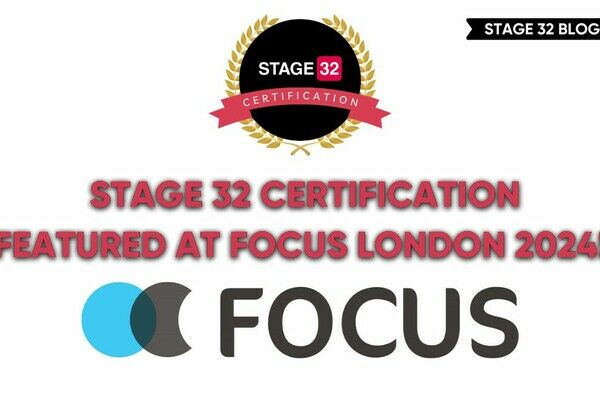
Stage 32 Certification at Focus London 2024!
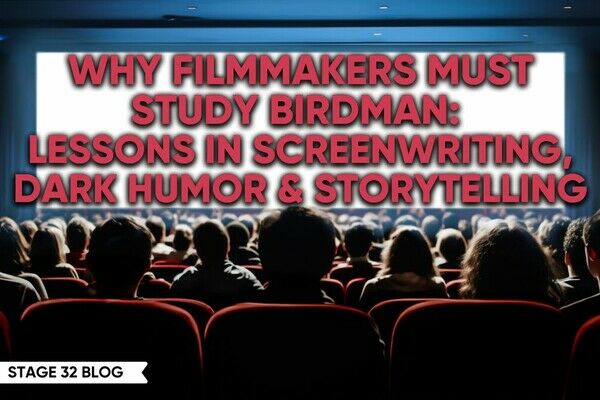
Why Filmmakers Must Study Birdman: Lessons in Screenwriting, Dark Humor, and Storytelling

Stage 32 Certification Welcomes El Paso, Texas!

Happy Thanksgiving From Stage 32: We Are Thankful For YOU
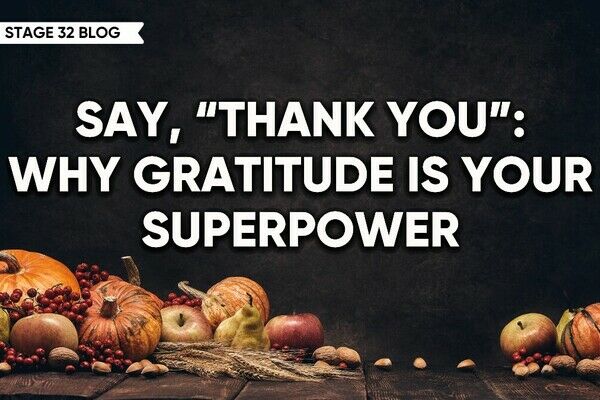
Say, “Thank you”: Why Gratitude is Your Superpower
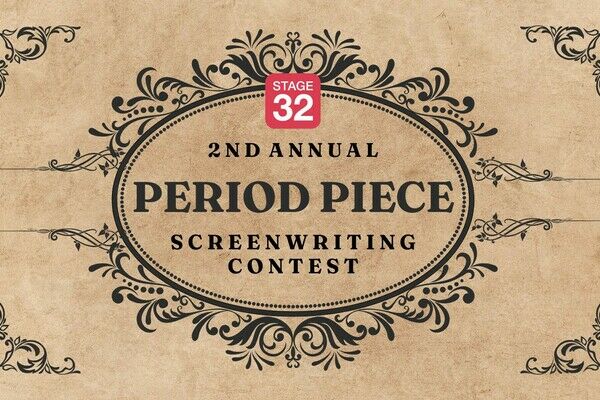
Announcing the 2nd Annual Period Piece Screenwriting Contest



